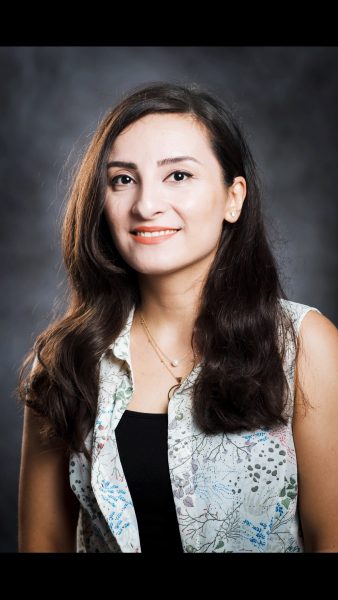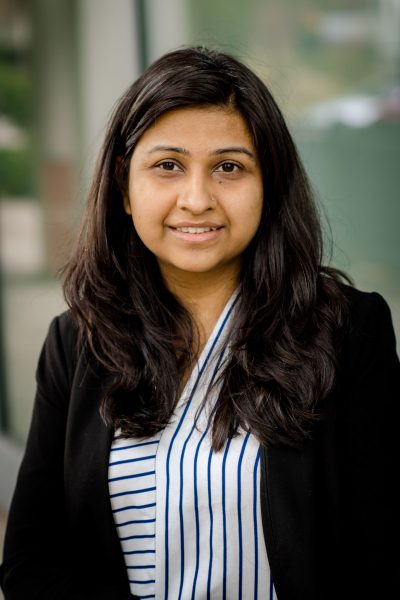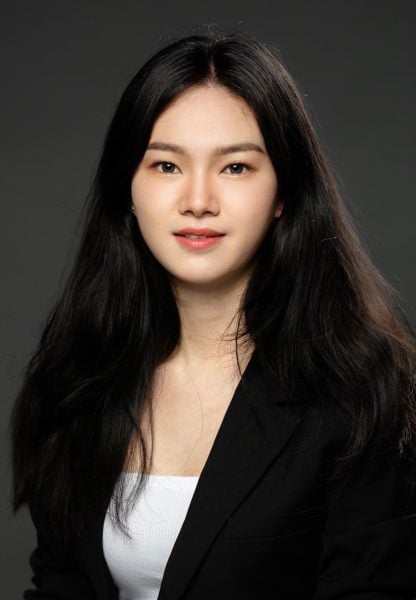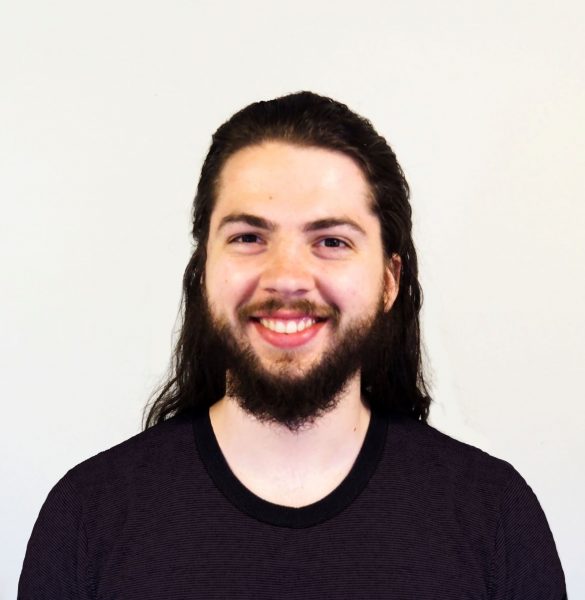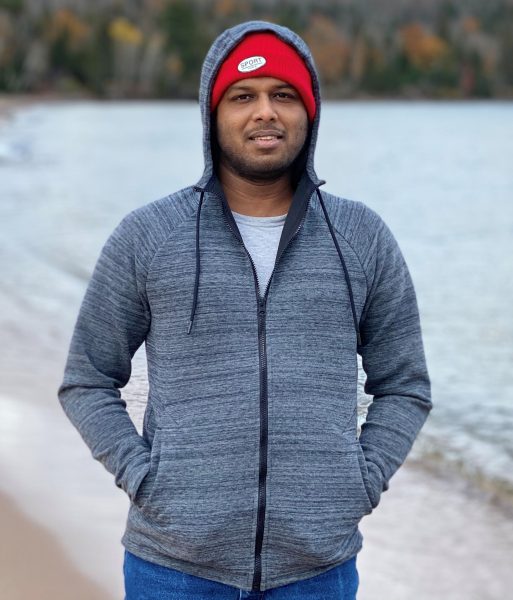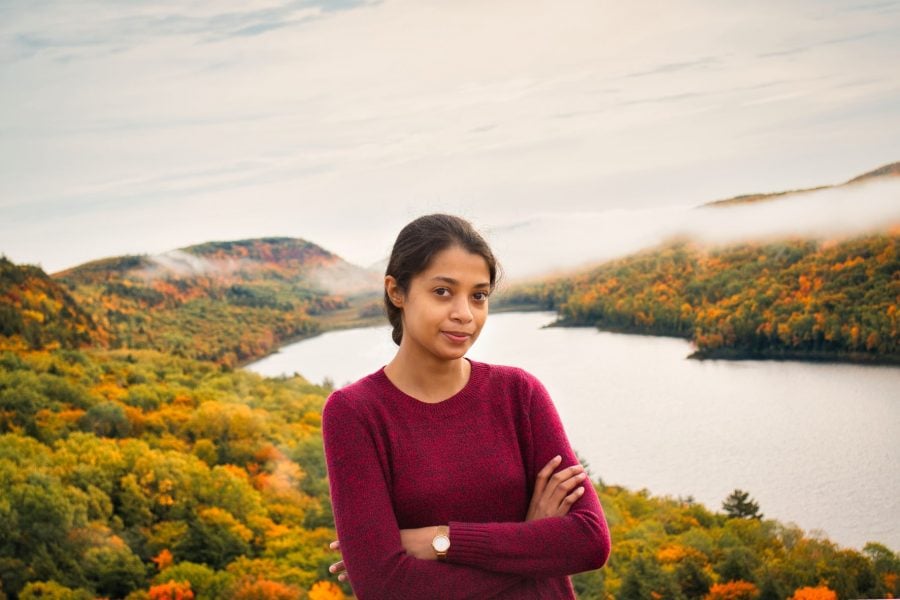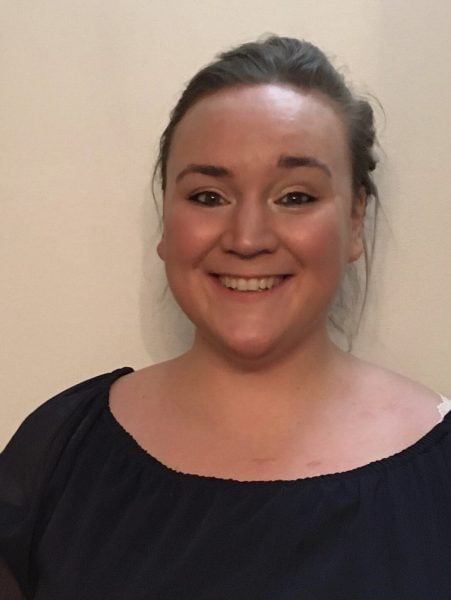In the spring of 2017, I started my journey at MTU as a Ph.D. student in Chemistry. The focus of my Ph.D. research is on the design and development of carbon dots (CDs) which are fluorescent nanomaterials with great potential in sensing and bioimaging. During my Ph.D., I could successfully synthesize high quantum yield CDs for iron ions sensing with the potential to be used in the clinical diagnosis of iron-related diseases or environmental monitoring of water quality. Also, I investigated the design of near-infrared nitrogen-doped CDs that would be ideal for bioimaging applications.
It is a great honor to receive the Doctoral Finishing Fellowship, and I am grateful to the graduate school and the Graduate Dean Awards Advisory Panel for their support. Through this fellowship, I will be able to focus on writing my dissertation and publishing my work in journals. Additionally, I would like to take this opportunity to thank my advisor, Dr. Patricia Heiden, for her help and support throughout my Ph.D. journey.
